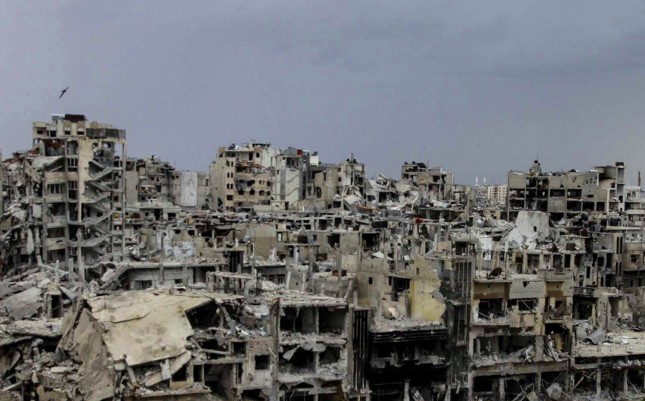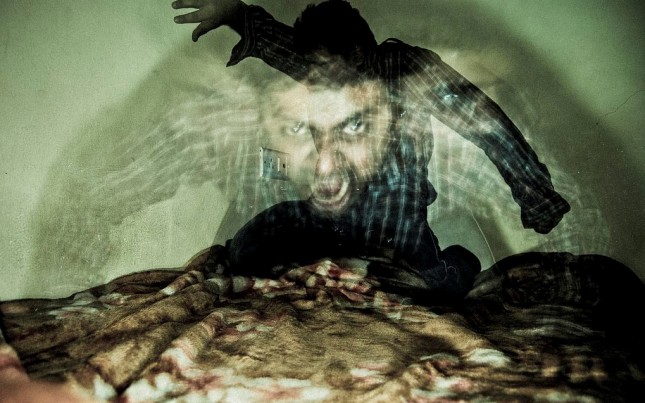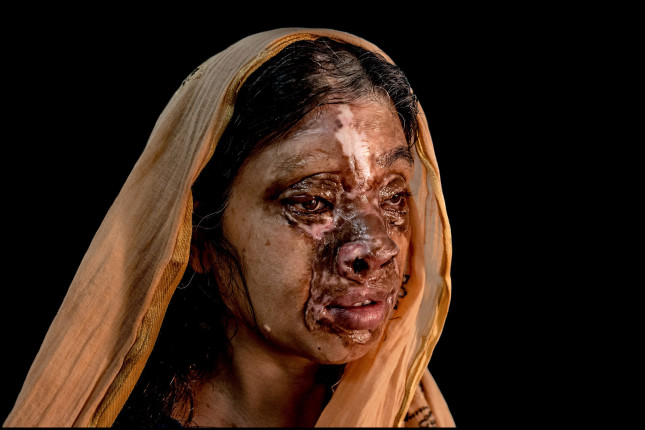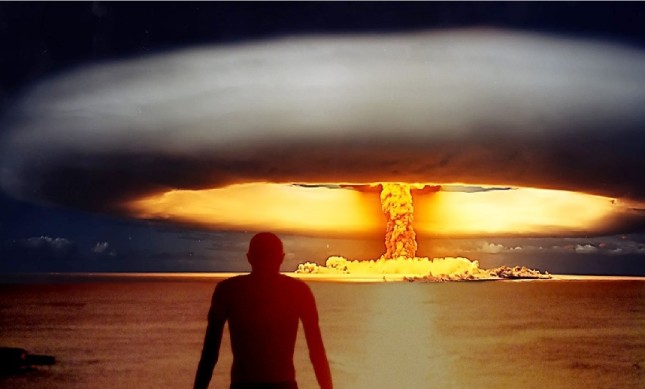New Era of Global Collective Psychosis
Anybody who has been unfortunate to be in a car or plane crash, but lucky enough to survive it and tell the story afterwards knows the inherent paradox: the event occurred in the blink of an eye, but seemed, in retrospect, to have unfolded in a dreadful slow-motion sequence. What can be called the crash time elasticity contradiction is an accurate metaphor for our era. It is the deep dichotomy of an intuitive knowledge that we, as a global collective, are on a deadly collision course while wearing the distorted slow-motion rosy glasses of projection, looking into some fictional eternal future. If time has, by essence, no end, our life span as a foolish megalomaniac species is about to reach an ugly curtain call. While the end times is a religious fiction, our looming apocalypse is entirely man-made and, as such, is a mere by product of ignorance and collective apathy.
For the very few of us still trying to impact the discourse, it has become incredibly challenging not to give in and surrender to the general entropy of crash time. With so many with their heads in the sand, ignoring an imminent systemic collapse, the effort to wake people up has become more than a Herculean task. The overall attention span is so minimal that ideas are almost never transformed into actions but are just ephemeral ripples on the deep water of forgetfulness. The constant media assault with its cacophony of killing mayhem, spectacles staged as reality, and propaganda passing for news has thoroughly brainwashed many people into a state of uncomfortable numbness. Meaningful ideas could, not so long ago, make waves and even change the tide of history. Now, the words of complex concepts have been gutted of all significance and served for idea consumption as trending hash tags. The media brainwasher/propagandists have powerful bullhorns and are always hard at work to keep their vast audience either uninformed, anxious, and feeling powerless or entertained. The news cycle has to spin so fast that critical thinking is never an option.
This deliberate aggression on our collective psyche, switching in rapid daily succession, is similar to the sleep deprivation torture technique known to induce psychosis in individuals. As an example, here is a frantic but accurately summarized version of a recent chain of events which was conveniently tucked in between two feel-good big media stories: Euro 2016 in the sports/entertainment division and the Democrats’ convention in the politics/entertainment category. A mass killing in Nice, conveniently justifying a three-month extension of the state of emergency in France; a failed military coup in Turkey, conveniently allowing PM Erdogan to assert a near absolute dictatorship in the country; an attack in Munich allegedly from Islamists, conveniently allowing Chancellor Merkel to reverse her previously generous Syrian migrants asylum policy; the killing of more than 200 Shiites in Kabul, Afghanistan, conveniently ignored by most Western media outlets.
It can reasonably be argued, and easily demonstrated, that a disease afflicting a person usually quickly affects a community. This goes of course for the middle-age plague pandemic called the Black Death which killed an estimated 50 percent of Europe’s population, and more than 120 million people worldwide. Beside its death toll, which reduced the world population by more than 25 percent during the 14th century, the plague pandemic induced deep collective psychological turmoil in connection with the interpretation that it was God’s punishment on mankind, and the start of the apocalypse. The plague revived the intolerance of religious fundamentalism. The Black Death was a foray into collective psychosis, where affected people were quarantined to die by the million from starvation.
A lot more recently, another form of collective psychosis struck humanity. That one was not a disease brought by rats, contaminated by infected fleas, to the shores of Europe, it was the ideology of the Nazis in Germany, and their fascist allies in Italy and imperial Japan. During the Weimar Republic, which spanned from 1919 to 1933, Germany was a culturally vibrant country at the vanguard in art, music, sciences, philosophy and literature. Nobody could have forecast that such an advanced civilization would become literally hypnotized by a mad man like Adolf Hitler. The global collective psychotic episode which engulfed the world between 1939 and 1945 and is called World War II, killed an estimated 72 million people worldwide. When one studies the history of mankind, it appears that mental disease combined with unusual charisma in a leader can be even more contagious than the plague in the middle-age. Contemporary Germans and Japanese suffer, in large part, from a convenient historical amnesia, but the evidence proves that their ancestors living during World War II were, by an overwhelming majority, fanatic supporters of Hitler and the emperor.
Hitler and the Nazis used the powers of seduction, decorum and elaborate brainwashing strategies to propagate their brand of madness, but in the summer of 1945, across the Atlantic, a seemingly quiet and normal leader did the unthinkable with two criminally insane decisions. On August 6, 1945, unassuming Harry Truman had no moral issue with ordering the killing of 140,000 civilians in Hiroshima, Japan with atomic bombs. Truman coldly did it again three days later and killed another 80,000 in Nagasaki. The quiet little man should be remembered as the lunatic who established terror as state policy. In August 1945, Japan was on its knees. The atomic bombing of Hiroshima and Nagasaki was not about speeding up the end of World War II like American historic propaganda still claims, it was about asserting US hegemony and scaring the world into submission. It is not a coincidence that only the United States of America has used the atomic bomb in warfare; it has been the empire’s ultimate prerogative.
From August 1945 to the present, the biggest collective fear has been nuclear annihilation, but like lab rats are often exposed to unmotivated electric shocks, smaller doses of fear and paranoia are administered to the population almost on a daily basis. Mass killings in some part of the planet or another, have become extremely useful to condition people into submission. In November, it will be a year since France has been under the boots of a state of emergency. Who would have thought that the country of revolution would have tolerated this? But again, who would have thought that Germany, Rwanda, Cambodia, and Yugoslavia could fall into the darkness of collective psychosis almost overnight? Who would have thought that a little man with the charisma of an accountant could have been mad enough to go on a rampage and kill 220,000 Japanese in August 1945? In a world gone mad, perhaps letting the criminally insane run the asylum is not such a good idea after all.
Editor’s Notes: Gilbert Mercier is the author of The Orwellian Empire. Photograph one by David Blackwell; photographs two and seven from Freedom House archive; photograph three by Thierry Ehrmann; photograph four by Anant Nath Sharma; photographs five and six by Zoriah; and photograph eight by Gavroche.
Related Articles





















One Response to New Era of Global Collective Psychosis
You must be logged in to post a comment Login